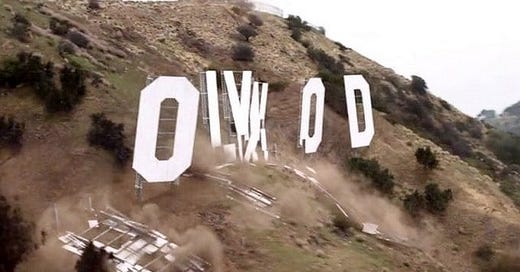For years, Hollywood has been a dominant force in entertainment. But behind the glitz, signs of its impending collapse have been growing.
Recent insider accounts, including that of former actress and filmmaker Justine Bateman, reveal a disheartening picture. The industry is not only facing economic strains and labor issues but also undergoing an existent…
Keep reading with a 7-day free trial
Subscribe to Kairos on Substack to keep reading this post and get 7 days of free access to the full post archives.



